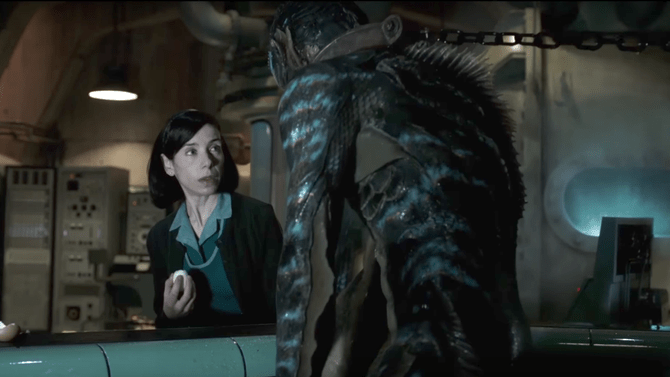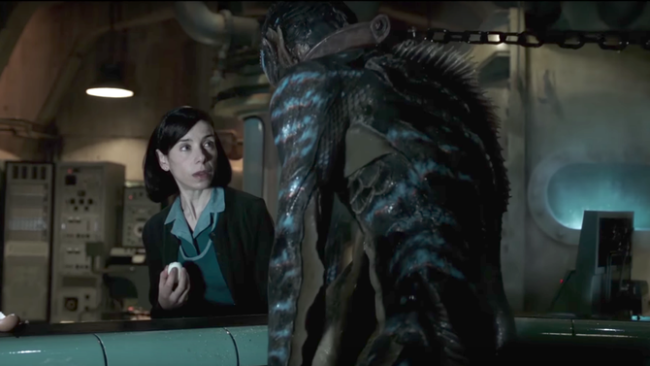Guillermo del Toro’s The Shape of Water Is Shaping Up to Be a Hit


Reviews are starting to pour in for Guillermo del Toro’s new film, The Shape of Water, and the water’s looking mighty fine for this fantastic Creature From the Black Lagoon-esque love story. The film made its debut at the Venice International Film Festival, and already critics are beginning to toss around some pretty glowing reactions.
The Guardian gave the film four (out of five) stars, and extolled the virtues of del Toro’s successful melding of “ravishing romance with B-movie thrills” as well as how he made the film “stylish and charming.” Truth be told, I think that’s a pretty fair assessment of a solid chunk of del Toro’s work. He’s always had that knack for reimagining and reinventing what would otherwise be schlocky B-movie hijinks, turning them into some of the most fun, most thrilling films of the past decade or so. It was especially nice (for me at least) to read that the film’s got a heart to it, that in spite of its suspenseful Cold War-era setting, “… it’s warmer and richer than the films that came before. Beneath that glossy, scaly surface is a beating heart.”
The Telegraph gave the film five stars, saying that it’s a “beautiful blood-curdler” and that it’s “as timeless as a fairy tale.”
If you’ve been watching the news at all lately, then you know that some pundits have labelled Trump’s standoff with North Korea something of a “Cold War II,” harping on much of the same paranoia and fear that gripped the nation back between 1947 and 1991. To set a movie in that era is telling, and del Toro addressed his decision to do so in a chat with The Hollywood Reporter, saying:
The movie is an antidote to now. It’s so difficult to talk about love and not sound silly, but I do believe the antidote to what we are living, which is a time full of hatred and division, is this humanistic possibility.
It’s really a movie about now, and ‘62 is very important because when Americans talk about making America great again, I think they are dreaming of that era. 1962 is a moment when America is believing in the future; everything is about the future, everything is about the space race; the cars have jet fins; the kitchen and house are all modern; the way the wife is presented is super pristine and neighborhoods are modern. Everything is about the future.
But despite that hopefulness, that era of looking to the stars and such, there’s a harsher reality baked into the rose-tinted glasses, a reality that ties the film to the here and now. He continued:
You have John F. Kennedy in the White House. It’s Camelot. It’s a golden moment in America and then Kennedy is shot. They continue Vietnam and then comes the disillusionment. So I think it’s the last moment when America believes in a dream that never quite crystallized. I think it’s important to show that [despite] the promise that existed in 1962, racism, sexism, all of that is still happening now.
On another note, one of the brighter highlights to come out of the film’s premiere is that critics are already beginning to toss around the word “Oscar,” especially as it relates to Sally Hawkins’ performance. Hawkins plays Elisa, a woman who falls in love with the creature who’s being held captive in the governmental laboratory where she works. Elisa also happens to be mute, and many critics are saying that because of this, Hawkins’ performance was “once-in-a-lifetime,” and that she’s really the one who carries the film.
Long story short, I know I’m going to watch the hell out of The Shape of Water. You can, too, when it surfaces in theaters December 8th.
(image: Bull Productions)
Want more stories like this? Become a subscriber and support the site!
—The Mary Sue has a strict comment policy that forbids, but is not limited to, personal insults toward anyone, hate speech, and trolling.—
Have a tip we should know? [email protected]